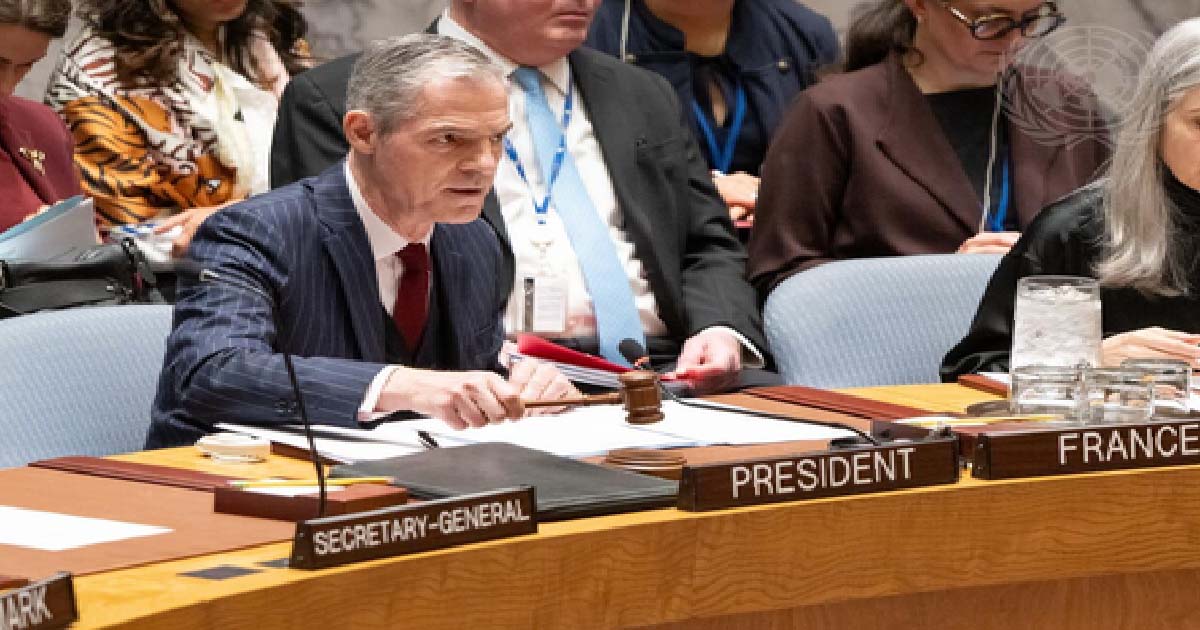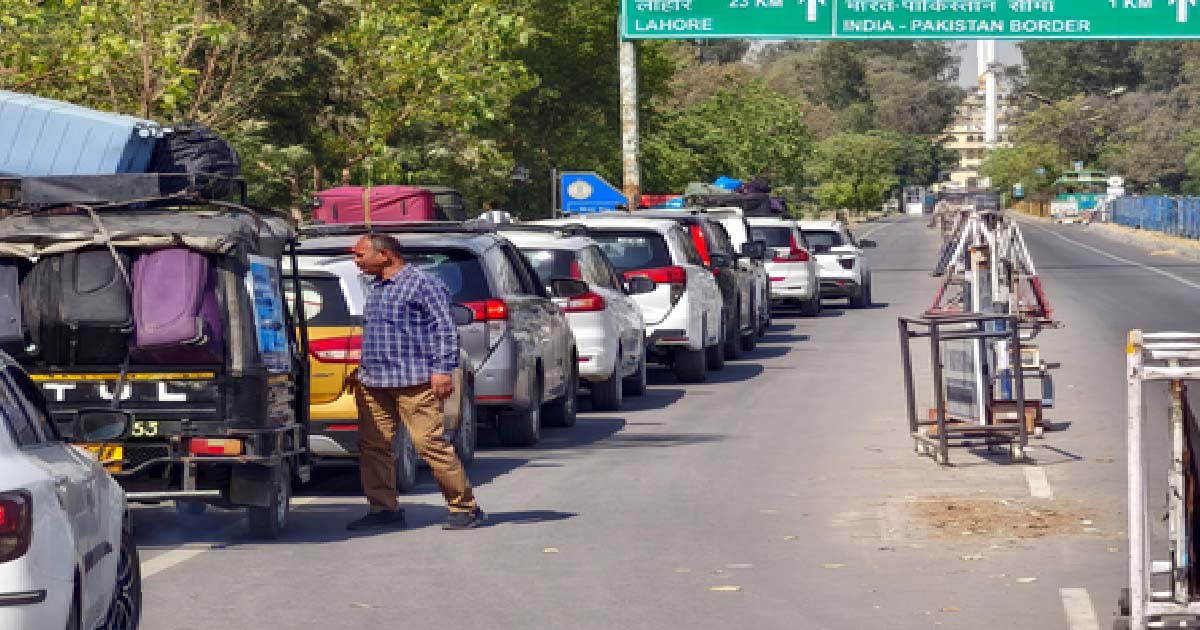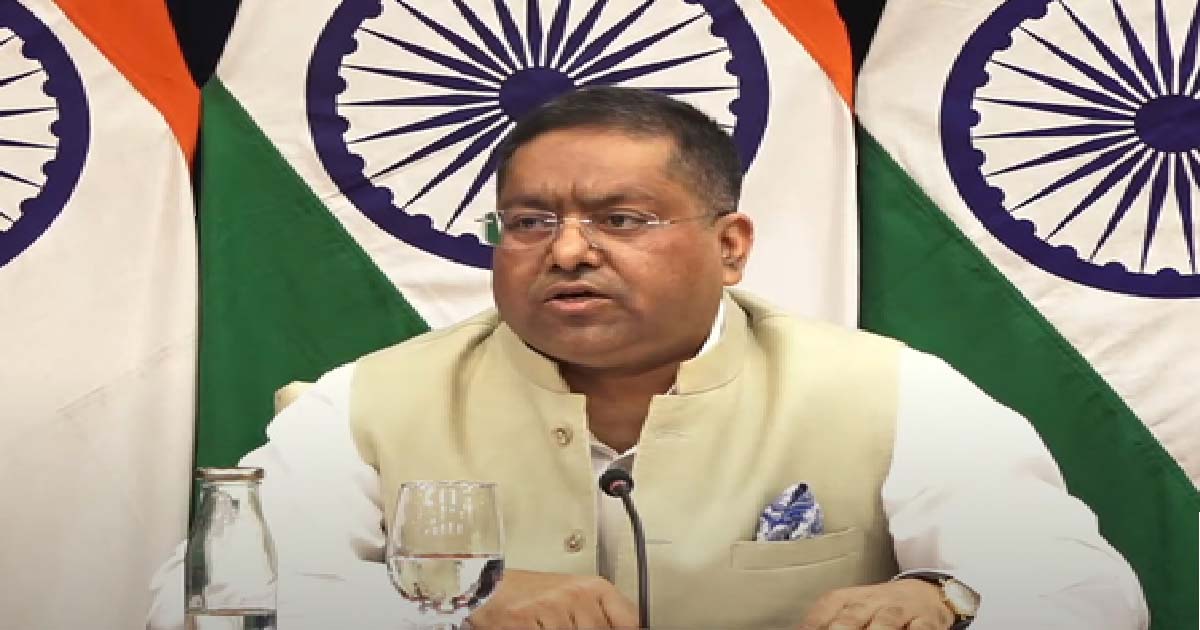International
IND v NZ: I think we did a great job in prising out nine wickets on the last day, says Dravid
India head coach Rahul Dravid appreciated the efforts of the bowlers in taking out nine wickets on day five in the drawn first Test against New Zealand at the Green Park Stadium on Monday. He added that pitch did not challenge outer as well as inner edges on day five. The last-wicket New Zealand pair of Rachin Ravindra and Ajaz Patel were defiant in keeping India away from a win, managing to save the match in a thrilling draw.
“I guess the facts of the pitch were that it was probably low and slow, didn’t have that much of bounce and turn. You probably expect a little bit more of wear and tear on these wickets in Indian conditions over the course of five days. It just didn’t seem to have that kind of bite. It’s generally in India on Day Five where you can challenge both edges, at least the spinners can challenge the outside edge for the catches and beat people on the inside edge for the lbw. In this game, the outside edge was virtually ruled out, and even till the last day none of the edges were carried. I can’t even remember a catch close to the edges. I think Bharat took a couple but other than that, it felt there was only one way to get people out which is bowled and lbw, which was probably true in the last session,” said Dravid in the post-match press conference.
“Inspite of that, I think we did a great job in prising out nine wickets on the last day. I have played in Kanpur before but it was slower and lower than I have experienced anything here before. Usually, on Day Five, you should get a bit more help, cracks widen up a little bit. Maybe it’s winter or what it was, it felt like if you wanted a block or wanted to score runs, then it felt really difficult to get people out. We saw that as quality guys were able to make a game out of this otherwise it could have easily become a dull draw,” added Dravid.
Dravid praised the team for showing the gumption to fight and maintaining their composure on what he felt was an ‘unresponsive pitch’ and admitted that light would have faded anytime in the closing stages of the match. “It was expected. I mean, we kind of knew the light was going to dip at that point in time. It has been happening sort of every day. Not very difficult. I mean, the guys were pretty switched on.”
“I thought we showed composure and great fighting spirit to be able to, sort of, worked really hard in that last session on what was quite an unresponsive pitch even on the fifth day. I think the guys were very good and did a really good effort, considering what it was to take eight wickets after lunch, three in that session, and five in the last one. Really run the game close and with a little bit of luck, could have gone our way as well. But I think the guys fought really hard today.”
The 48-year-old defended the timing of the declaration by India in the second innings, saying that the team had timed it well. “No, I don’t think so. That’s not my reading of the game. Till half an hour before we declared, we were under pressure. All the three results were possible. To be very honest with you, if we had got out, obviously Wriddhiman Saha showed great courage and character in batting with stiff neck he had, we had lost last three wickets quickly and they would have been chasing 230-240 in 110 overs, then they were looking at 2.2 or 2.3 runs per over.”
“I thought we timed our declaration really well. We lost Shreyas just before tea and then we had that partnership which was really critical for us from 167/7 to get to 234/7 was absolutely necessary. This wicket was really flat and if it was bouncing or turning and had both edges in play, there would have been a different situation. Even today if you could walk into a ground and see that the opposition needs under three runs an over, that’s not a lot of runs if a couple of batsmen get set. I thought we did well, timed it well, managed to get a wicket yesterday, and came close today. So, we timed it well. You people forget that we were under pressure as well even 45 mins before we declared.”
International
UNSC asks all countries to cooperate in bringing Pahalgam terrorists, backers to justice

United Nations, April 26: The Security Council has “condemned in the strongest terms” the Pahalgam terrorist attack and urged all countries to cooperate in bringing all those involved in the massacre, to justice.
The members of the Security Council “stressed that those responsible for these killings should be held accountable, and urged all States, in accordance with their obligations under international law and relevant Security Council resolutions, to cooperate actively with all relevant authorities in this regard”, Council President Jerome Bonnafont said in a Press statement on Friday.
A front organisation of the Pakistan-based terrorist group Laskhar-e-Tayiba has owned responsibility for the attack.
The statement issued by France’s Permanent Representative Bonnafont who is the Council president for this month, took a broad view of those involved in the massacre by including the financiers and sponsors.
“The members of the Security Council underlined the need to hold perpetrators, organisers, financiers and sponsors of this reprehensible act of terrorism accountable and bring them to justice”, the statement said.
Pakistan, which is on the Council as an elected member, went along with the other members in endorsing the statement, committing itself – at least on paper – to bringing those involved to justice.
A Press statement expresses the consensus of the Council and carries moral authority, while not being legally binding like a resolution.
The statement also shot down the attempts by some in Pakistan to give terrorist attacks a veneer of justification.
“The members of the Security Council reiterated that any acts of terrorism are criminal and unjustifiable, regardless of their motivation, wherever, whenever and by whomsoever committed”, it said.
The Council members “reaffirmed the need for all States to combat by all means, in accordance with the Charter of the United Nations and other obligations under international law, including international human rights law, international refugee law and international humanitarian law, threats to international peace and security caused by terrorist acts”, the statement added.
Earlier, the spokesperson for Secretary-General Antonio Guterres hinted that a diplomatic effort by him may be afoot.
Asked by a reporter, if Guterres would speak to leaders of India and Pakistan, Spokesperson Stephane Dujarric said that he hoped to have something to share on that later.
Reiterating the condemnation of the terrorist attacks, Dujarric said, “We again urge both the Government of India and the Government of Pakistan to exercise maximum restraint to ensure the situation does not deteriorate further.”
When a reporter asserted that the possibility that “two nuclear countries” might “go to war” was getting insufficient attention, Dujarric said, “I don’t agree with your comment. We are paying very close attention to the situation between India and Pakistan.”
International
Wagah-Attari border closure leaves several families in limbo

Islamabad, April 25: Pakistan and India’s decision to shut down the Wagah-Attari border crossing after the deadly Pahalgam terror attack has forced several citizens from both countries to cut short their visit and rush back home.
On Thursday, after both countries announced closure of border crossing and gave a deadline for citizens to leave for their respective countries, at least 28 Pakistanis nationals returned from India while 105 Indian citizens in Pakistan crossed over into India.
A Hindu family from Balochistan’s Sibi was reportedly denied entry into India after the closure of border crossing.
“We were on our way to Indore in Madhya Pradesh to attend a wedding. Seven members of our family were excited to join our relatives in India and take part in the celebrations. But upon reaching Wagah, we learned that the border had been sealed. We will spend the night at Dera Sahib in Lahore and head back home tomorrow,” said Akshay Kumar.
Meanwhile, a Sikh family from India, in Pakistan to attend a wedding, decided to leave for India immediately.
“We had come to Pakistan for a wedding. While the ceremony took place, several important rituals remained. Once we heard the border was closed, we decided to return immediately,” said Raminder Singh, an Indian national.
A Hindu family from Ghotki in Pakistan’s Sindh province, now residing in New Delhi, was visiting Pakistan for the last two months to meet their relatives. However, they are now unsure about getting permission to return to India.
“There are five of us, including my young son and daughter, uncle and aunt. We all hold Pakistani passports and were granted No Obligation to Return to India (NORI) certificate by India. But uncertainty looms now, said a family member named Indira.
“Families with cross-border ties often bear the brunt of rising tensions between the two neighbours. With tensions between Pakistan and India once again on the rise, human connections across borders are becoming the first casualty,” said Asif Memood, a Lahore-based journalist.
“The closure of the Wagah-Attari border has left many families in limbo, uncertain when they will next reunite with their loved ones,” he added.
International
Murder of Hindu leader: India slams Bangladesh, says killing follows pattern of systematic persecution of Hindu minorities

New Delhi, April 19: India on Saturday issued a sharp condemnation of the abduction and brutal killing of Bhabesh Chandra Roy, a prominent Hindu community leader in northern Bangladesh, calling it part of a “pattern of systematic persecution” of minorities under the country’s interim government.
Ministry of External Affairs (MEA) spokesperson Randhir Jaiswal voiced India’s grave concern, stating that the incident reflects an alarming trend of targetted violence against Hindus and other minority groups in Bangladesh.
“We have noted with distress the abduction and brutal killing of Shri Bhabesh Chandra Roy, a Hindu minority leader in Bangladesh. This killing follows a pattern of systematic persecution of Hindu minorities under the interim government, even as the perpetrators of previous such events roam with impunity,” Jaiswal said in a post on social media platform X.
He added, “We condemn this incident and once again remind the interim government to live up to its responsibility of protecting all minorities, including Hindus, without inventing excuses or making distinctions.”
India has previously expressed similar concerns over rising attacks on minorities in Bangladesh, but this latest incident has drawn particular attention due to Roy’s prominence in the Hindu community.
Roy, who served as the Vice-President of the Biral unit of the Bangladesh Puja Udjapan Parishad, was abducted from his residence in Dinajpur district on Thursday evening. According to police and family accounts, he received a phone call around 4:30 p.m., after which four unidentified men arrived on motorcycles and forcibly took him to Narabari village. He was reportedly assaulted and later found unconscious. He was rushed to a hospital in Dinajpur, where he was declared dead on arrival. His wife, Shantana Roy believes the attackers used the call to confirm his location before carrying out the abduction.
Opposition leaders in India also slammed the shocking incident in the neighbouring country.
Congress President Mallikarjun Kharge highlighted that religious minorities, especially Hindus, are being persecuted in Bangladesh.
“Attacks on other religious minorities are also continuing. Recently, the Chief Advisor of Bangladesh made a very condemnable and disappointing comment about the northeastern states of India. The persecution of religious minorities in Bangladesh, human rights violations, and the attempt to erase the memories of the 1971 Liberation War are efforts to weaken the relationship between India and Bangladesh. From 1971 till today, India has always wished for peace and prosperity for all the people of Bangladesh. This is in the best interest of the subcontinent,” he said.
-

 Crime3 years ago
Crime3 years agoClass 10 student jumps to death in Jaipur
-

 Maharashtra1 year ago
Maharashtra1 year agoMumbai Local Train Update: Central Railway’s New Timetable Comes Into Effect; Check Full List Of Revised Timings & Stations
-

 Maharashtra1 year ago
Maharashtra1 year agoMumbai To Go Toll-Free Tonight! Maharashtra Govt Announces Complete Toll Waiver For Light Motor Vehicles At All 5 Entry Points Of City
-

 Maharashtra1 year ago
Maharashtra1 year agoFalse photo of Imtiaz Jaleel’s rally, exposing the fooling conspiracy
-

 National News1 year ago
National News1 year agoMinistry of Railways rolls out Special Drive 4.0 with focus on digitisation, cleanliness, inclusiveness and grievance redressal
-

 Maharashtra1 year ago
Maharashtra1 year agoMaharashtra Elections 2024: Mumbai Metro & BEST Services Extended Till Midnight On Voting Day
-

 National News1 year ago
National News1 year agoJ&K: 4 Jawans Killed, 28 Injured After Bus Carrying BSF Personnel For Poll Duty Falls Into Gorge In Budgam; Terrifying Visuals Surface
-

 Crime1 year ago
Crime1 year agoBaba Siddique Murder: Mumbai Police Unable To Get Lawrence Bishnoi Custody Due To Home Ministry Order, Says Report
















